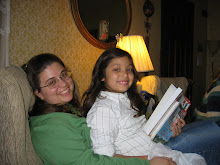Keep on reviewing for exam....
We've been doing a great deal of review for the mid term in classes this week, and one thing is clear -- MOST of the students need to STUDY more. I heard lots of stories about four or more hours spent on Wii and other recreation on the day off yesterday. Four hours studying for the mid-term would have been well spent.
To help get them started, I gave review homework:
Complete worksheet called: "Midterm Review Day 4"
Tuesday, January 6, 2009
Homework January 6
Two things --
1. Projects (ABC book, speech, timeline, or powerpoint) should be HALF done by tomorrow for a check.
2. Worksheet on "expanding sentences" due tomorrow.
1. Projects (ABC book, speech, timeline, or powerpoint) should be HALF done by tomorrow for a check.
2. Worksheet on "expanding sentences" due tomorrow.
Monday, January 5, 2009
Homework and "Fair Game" list for mid-term exam
Tonight, please complete the double sided worksheet on combining sentences, get a parent to sign your last test if you earned less than an 80 on it, and begin reviewing for the mid-term.
Fair Game list:
o Summarizing Fiction
o Short story plot structure and definitions
o Be prepared to answer essential question for short story unit in a constructed response: What makes a good short story?
o Reading comprehension questions on the following short stories and folk tales (open book, BUT you don’t want to waste a lot of time having to re-read, so be familiar enough with the stories that a quick skim will be enough to answer the question)
“Lather and Nothing Else”
“Zoo”
“Rikki Tikki Tavi” --- Blocks 2 and 3 only
“Ransom of Red Chief” --- Block 3 only
“Town Mouse, Country Mouse”
“The Fox and the Crow” (Blocks 2 and 4 only)
“The Mice That Set the Elephants Free” (Block 2 only)
“All Stories are Anansi’s”
o Constructed Response writing – structure, expectations, and application (you may actually write one)
o Structure and parts of a 5 paragraph Response to Text Essay, including what makes a good thesis statement and what goes in each paragraph
o Be prepared to answer all three essential questions on our folktale unit:
Why have these tales survived?
What specific information can we learn about a culture by the tales it tells?
What are some aspects of folktales that are similar across multiple cultures?
o Be prepared to describe, in detail, at least two Cinderella tales and how they are both similar and different.
o Correct usage and spelling of the 48 “Unacceptable Errors / No Excuses List” and the “General Expectations” for writing, such as capitalization rules.
o Be able to label, answer, and create four different types of questions
o Know all Word Whiz:
30 Fun and Useful Words – definitions, synonyms, how to use them in sentences
35 Word Parts – meaning, examples
65 Language Arts terms – definitions, examples
o Be able to identify and write 4 types of sentences
o Be able to identify and correct fragments and run-ons
o Be able to identify and write subjects and predicates
o Be able to create and complete analogies using common knowledge and Word Whiz
Fair Game list:
o Summarizing Fiction
o Short story plot structure and definitions
o Be prepared to answer essential question for short story unit in a constructed response: What makes a good short story?
o Reading comprehension questions on the following short stories and folk tales (open book, BUT you don’t want to waste a lot of time having to re-read, so be familiar enough with the stories that a quick skim will be enough to answer the question)
“Lather and Nothing Else”
“Zoo”
“Rikki Tikki Tavi” --- Blocks 2 and 3 only
“Ransom of Red Chief” --- Block 3 only
“Town Mouse, Country Mouse”
“The Fox and the Crow” (Blocks 2 and 4 only)
“The Mice That Set the Elephants Free” (Block 2 only)
“All Stories are Anansi’s”
o Constructed Response writing – structure, expectations, and application (you may actually write one)
o Structure and parts of a 5 paragraph Response to Text Essay, including what makes a good thesis statement and what goes in each paragraph
o Be prepared to answer all three essential questions on our folktale unit:
Why have these tales survived?
What specific information can we learn about a culture by the tales it tells?
What are some aspects of folktales that are similar across multiple cultures?
o Be prepared to describe, in detail, at least two Cinderella tales and how they are both similar and different.
o Correct usage and spelling of the 48 “Unacceptable Errors / No Excuses List” and the “General Expectations” for writing, such as capitalization rules.
o Be able to label, answer, and create four different types of questions
o Know all Word Whiz:
30 Fun and Useful Words – definitions, synonyms, how to use them in sentences
35 Word Parts – meaning, examples
65 Language Arts terms – definitions, examples
o Be able to identify and write 4 types of sentences
o Be able to identify and correct fragments and run-ons
o Be able to identify and write subjects and predicates
o Be able to create and complete analogies using common knowledge and Word Whiz
Subscribe to:
Posts (Atom)
